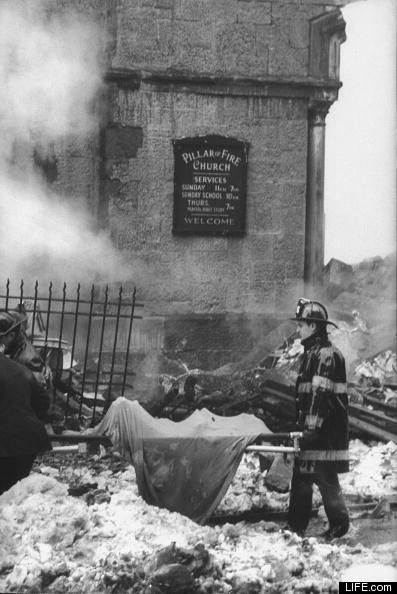Over the last week or so a trend has emerged to rewrite, or radically edit, parts of historical documents because some would like to revise history, pretend it never happened, because it is uncomfortable or embarrassing. Two cases stand out more than any others. First, there was the “rewriting” of Mark Twain‘s classic novel of childhood in the South, Huckleberry Finn which was edited to remove the “N” word. The other was the new Republican controlled House of Representatives reading their version of the US Constitution. I didn’t know there was another one, silly me.
I’ll start with the Washington Post’s columnist, Dana Milbank. Yes, Dana, who rarely says anything I can agree with but he managed to surprise me with this from his Op-Ed, A Sanitized Constitution
Reading the document aloud failed to re-affirm lawmakers’ fealty to the framers.
It was a straightforward proposition: The new House Republican majority would lead the chamber in reading the Constitution. But nothing in Congress is straightforward, and the moment the lawmakers began the exercise Thursday morning, they bogged down in a dispute.
They couldn’t agree on which version to read.
Now most Americans are of the impression that there isn’t, say, a King James version of the Constitution and a New International version of the Constitution. There is only one version. But our leaders had other views. . . . .
In fact, there is only one version of the Constitution – and it wasn’t what the lawmakers read aloud. What the Republican majority decided to read was a sanitized Constitution – an excerpted version of the founding document conjuring a fanciful land that never counted a black person as three-fifths of a white person, never denied women the right to vote, never allowed slavery and never banned liquor.
The idea of reading the Constitution aloud was generated by the Tea Party as a way to re-affirm lawmakers’ fealty to the framers, but in practice it did the opposite. In deciding to omit objectionable passages that were later altered by amendment, the new majority jettisoned “originalist” and “constructionist” beliefs and created – dare it be said? – a “living Constitution” pruned of the founders’ missteps. Nobody’s proud of the three-fifths compromise, but how can we learn from our founding if we aren’t honest about it?
What can I say? But that the revisionist Republicans would like you to believe that the US is a “perfect” union. Well, not quite yet but despite them, some of us are still striving.
Now there is the sanitizing of “Huckleberry Finn” by Alan Gribben, a professor of English, because the use of the “N” word throughout the book that may have
resulted in the novel falling off reading lists, and that he thought his edition would be welcomed by schoolteachers and university instructors who wanted to spare “the reader from a racial slur that never seems to lose its vitriol.” Never mind that today nigger is used by many rappers, who have reclaimed the word from its ugly past. Never mind that attaching the epithet slave to the character Jim – who has run away in a bid for freedom – effectively labels him as property, as the very thing he is trying to escape.
Correct me if I’m wrong but isn’t encouraging students to think and exposing them to facts part of teaching? Since when does taking offense words out of books, or for that matter entire books out of a curriculum, foster understanding? It is and it doesn’t. We need to know history to understand it. We need to read the facts and words that make us uncomfortable in our own “skin”.
New York Times book reviewer, Michiko Kakutani, writes:
Controversies over “Huckleberry Finn” occur with predictable regularity. In 2009, just before Barack Obama’s inauguration, a high school teacher named John Foley wrote a guest column in The Seattle Post-Intelligencer in which he asserted that “Huckleberry Finn,” “To Kill a Mockingbird” and “Of Mice and Men,” don’t belong on the curriculum anymore. “The time has arrived to update the literature we use in high school classrooms,” he wrote. “Barack Obama is president-elect of the United States, and novels that use the ‘N-word’ repeatedly need to go.”
Haven’t we learned by now that removing books from the curriculum just deprives children of exposure to classic works of literature? Worse, it relieves teachers of the fundamental responsibility of putting such books in context – of helping students understand that “Huckleberry Finn” actually stands as a powerful indictment of slavery (with Nigger Jim its most noble character), of using its contested language as an opportunity to explore the painful complexities of race relations in this country. To censor or redact books on school reading lists is a form of denial: shutting the door on harsh historical realities – whitewashing them or pretending they do not exist.
(emphasis mine)
As Adam Sewer observed comparing the Republican “edition” of the Constitution and the edited version of Twain’s classic, “This kind of political correctness offers no justice to the descendants of slaves — it merely papers over a terrible ugliness that is an essential part of American history.”
I’ll leave the final thought to Jamelle Bouie, who said it best:
But erasing “nigger” from Huckleberry Finn-or ignoring our failures-doesn’t change anything. It doesn’t provide racial enlightenment, or justice, and it won’t shield anyone from the legacy of slavery and racial discrimination. All it does is feed the American aversion to history and reflection. Which is a shame. If there’s anything great about this country, it’s in our ability to account for and overcome our mistakes. Peddling whitewashed ignorance diminishes America as much as it does our intellect.
(emphasis mine)


 I was at
I was at  What I saw will stick in my mind forever, as it did last night, on the
What I saw will stick in my mind forever, as it did last night, on the
Recent Comments